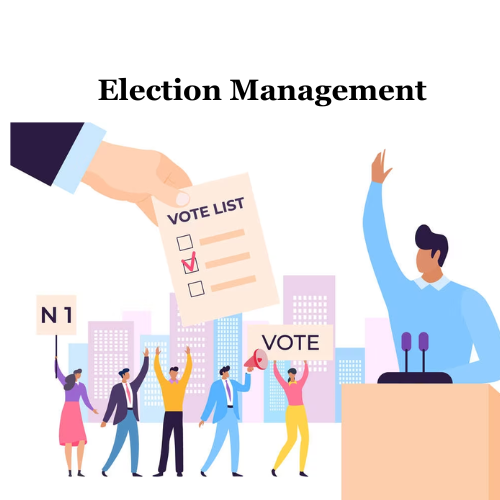Election campaigns serve as the cornerstone of political discourse and decision-making. Over the years, the methods and mediums for reaching out to voters have transformed significantly. One of the most profound shifts has been the integration of social media platforms into the fabric of election campaign management. In this blog, we delve into the significance of social media in modern election campaigns, exploring its mechanisms and the myriad benefits it offers to political candidates and parties. Election campaign management involves strategizing, messaging, and mobilizing resources to secure electoral success.
What is an election campaign?
An election campaign is a strategic endeavor undertaken by political candidates or to garner support, sway public opinion, and ultimately secure victory parties in an electoral contest. These campaigns typically involve a multifaceted approach that includes various activities such as public rallies, debates, advertisements, and outreach efforts aimed at engaging with voters across diverse demographics.
How does social media work in election campaigns?
Social media optimization has revolutionized the way election campaigns are conducted. With billions of users worldwide, platforms like Facebook, Twitter, Instagram, and YouTube provide unparalleled reach and engagement opportunities for political actors. Here’s how social media functions within the realm of election campaign management:
Targeted Advertising
Social media algorithms enable precise targeting of specific demographic groups based on factors such as age, location, interests, and browsing behavior. Political advertisers can tailor their messages to resonate with different segments of the electorate, maximizing the impact of their campaigns.
Real-Time Communication
Social media facilitates instant communication between candidates and voters. Politicians can share their policy positions, respond to inquiries, and address concerns in real-time, fostering a sense of accessibility and transparency that resonates with the electorate.
Viral Content
The viral nature of social media allows campaign messages to spread rapidly across vast networks of users. Compelling visuals, catchy slogans, and engaging videos have the potential to go viral, amplifying the reach and visibility of a candidate’s or party’s campaign.
Data Analytics
Social media platforms offer robust analytics tools that enable campaign strategists to track the performance of their content and measure its impact on voter sentiment. By analyzing metrics such as engagement rates, click-through rates, and audience demographics, campaigns can refine their messaging strategies for optimal effectiveness.
Community Building
Social media fosters the creation of online communities centered around political ideologies, causes, and candidates. These digital communities serve as hubs for grassroots organizing, volunteer recruitment, and peer-to-peer advocacy, augmenting the ground game of traditional campaign efforts.
Benefits of Social Media
- Wider Reach: Social media transcends geographical boundaries, allowing candidates to reach voters far beyond their local constituencies. This broad reach is particularly advantageous in national and international elections, where building name recognition and mobilizing support on a massive scale are essential.
- Cost-Effectiveness: Compared to traditional advertising channels such as television and print media, social media advertising offers a more cost-effective means of reaching targeted audiences. Campaigns can allocate their resources efficiently, maximizing their return on investment and stretching their budget further.
- Engagement and Interaction: Social media facilitates two-way communication between candidates and voters, fostering meaningful engagement and interaction. Through comments, likes, shares, and direct messages, voters can actively participate in the political discourse, providing feedback, asking questions, and voicing their concerns.
- Data-Driven Decision Making: The data analytics capabilities of social media platforms empower campaign strategists to make data-driven decisions based on real-time insights. By leveraging data analytics, campaigns can identify trends, assess sentiment, and adapt their messaging strategies to resonate with evolving voter preferences.
- Youth Mobilization: Social media platforms are particularly effective at mobilizing younger demographics, who are often more active and engaged online than older age groups. Political campaigns can leverage social media to galvanize youth participation, harnessing the collective energy and enthusiasm of young voters to drive electoral outcomes.
SpaceEdge Technology: Best Election Management company
SpaceEdge Technology specializes in providing comprehensive election campaign management solutions tailored to the unique needs of political candidates and parties across India. With a team of seasoned professionals and cutting-edge technology, we empower our clients to navigate the complex landscape of electoral politics with confidence and efficacy.
